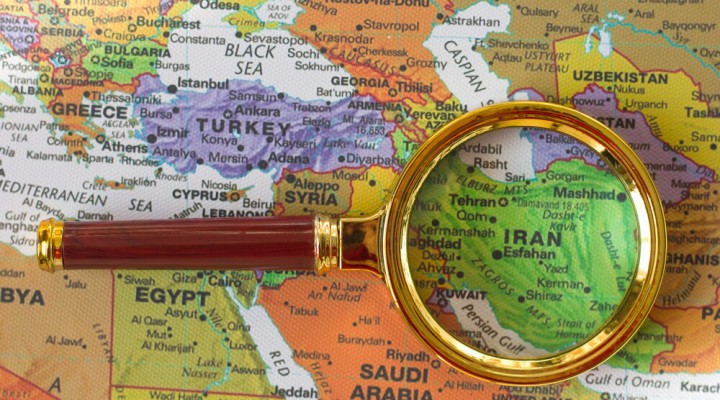Iran’s SCO Membership as Game Changer

Iran’s accession to the Shanghai Cooperation Organization (SCO) is a game-changing event with global consequences. Russia, China, Iran and others are forging closer relations as a defense against Western sanctions, rewriting the rules of global economic interaction in the process.
Iran is joining the SCO at a time of immense geopolitical change. When the SCO came into existence back in 2001, its primary focus was regional security, with its original six members — Russia, China, and the four Central Asian countries of Kazakhstan, Kyrgyzstan, Tajikistan and Uzbekistan — focused on curbing terrorism, separatism and extremism in Central Asia. This approach was largely driven by the Sep. 11, 2001, attacks on the US, after which a US-led coalition became heavily engaged in military operations and nation-building in Afghanistan. Iran sought and was given observer status in the SCO early on, but tension between Tehran and the international community over its nuclear program was an obstacle for Iran achieving full membership.
This obstacle was lifted in 2015, when Iran agreed to the Joint Comprehensive Plan of Action (JCPOA) — the so-called “Iran nuclear deal.” Russia and China, both parties to the JCPOA, viewed the nuclear issue as resolved, and were prepared to move forward regarding Iran’s accession to an SCO whose emphasis was shifting from security-related issues to a more economic focus. The precipitous withdrawal of the US from the JCPOA in 2018, however, complicated the picture by putting US economic sanctions back into the mix, challenging any notion of integrating Iran into the developing SCO economic universe.
Under normal conditions, the existence of US sanctions would have proven a poison pill for Iranian membership. Three events, however, changed the global geopolitical landscape and, in doing so, helped neutralize the intimidation factor normally associated with US sanctions. These were the Covid-19 pandemic, which rattled the global economy; the US withdrawal from Afghanistan, which opened up the Central Asian region for Chinese-led economic development; and the Russian war in Ukraine, which forced many nations, including Russia China, India and Pakistan (which became SCO members in 2017), to develop and maintain robust economic relations that either ignored the threat of US sanctions or were crafted to avoid them.
Actions and Reactions
The noted mathematician and physicist, Isaac Newton, in defining the “laws of motion,” held in his Third Law that for every action, there is an equal and opposite reaction. Newton’s Third Law is applicable to geopolitics as well, including the impact of sanctions policy. US Treasury Secretary Janet Yellin recently outlined the core elements of a US strategy for economic engagement in a post-pandemic world deeply divided over the ongoing Russian war in Ukraine. This strategy is built around two primary concepts — de-risking and “friend-shoring.”
De-risking is a process favored by financial institutions to terminate or restrict relations with clients that is designed to avoid, rather than manage, risk. Its original context implied a divorce between the institution and client. A more nuanced use of the term came into use in the context of European economic relations with China, and was first used in March 2023 in a speech delivered by European Commission President Ursula von der Leyen. Here, de-risking is not seen as being absolute, for fear of being misconstrued as de-coupling. But the reality is that de-risking is de-coupling, conducted on terms designed to manage the risks associated with any precipitous divorce.
A key aspect of this risk management is the concept of friend-shoring, a strategy where a country seeks to source what it needs for sustained economic health — raw materials, components and even manufactured goods — from countries that share its values. With the Covid-19 pandemic, the US and Europe became aware of their strategic vulnerabilities to a global economic supply chain that had become increasingly dominated by China. Likewise, in the aftermath of the Russian invasion of Ukraine, the US and Europe saw their efforts to isolate and punish Russia falter in the face of a changing global economy becoming more anchored to China. In this context, de-risking and friend-shoring became the driving concepts behind a US-led effort to counter the gravitational pull of China’s growing economic clout.
Breaking From the West
The US’ de-risking and friend-shoring strategies are designed to isolate, contain and, in many ways control, the economies of China, Russia and Iran. This is where the economic potential of the SCO, which currently comprises some 20% of global GDP and a quarter of the world’s population, comes into play. The SCO and Brics (the economic forum comprised of Brazil, Russia, India, China and South Africa, which Iran and other nations have applied to join) are growth engines, increasing their global clout annually.
De-risking cuts both ways. As the US seeks to isolate Iran, Russia and China, these nations have fallen back on themselves and their growing list of economic allies — including Saudi Arabia, Turkey, Egypt, Argentina and others — in effect friend-shoring themselves against the impact of US and European sanctions.
Policymakers in the bastions of Western power — Washington, London and Brussels — struggle to recognize that the rules-based international order is being replaced by a new multipolar reality defined by entities such as the SCO, whose members — including Iran — are rewriting the rules of global economic interaction. Membership in the SCO liberates Iran from its prior strangling economic entanglements with the West.
https://www.energyintel.com/00000189-77bb-dc99-afbd-f7fbf5050000
 TheAltWorld
TheAltWorld 
0 thoughts on “Iran’s SCO Membership as Game Changer”